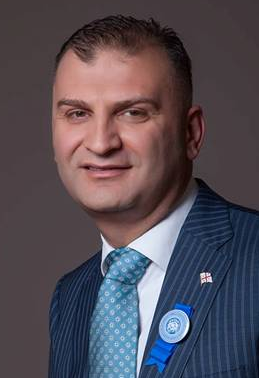The 23rd NISPAcee Annual Conference
Tbilisi, Georgia, May 21 - May 23, 2015
"Failure is not fatal, but failure to change might be.”
John Wooden
Dear colleagues,
On behalf of the Organisers, it is our pleasure to invite you to participate in the 23rd NISPAcee Annual Conference in Tbilisi, Georgia, organised by NISPAcee and Caucasus University.
The main theme of the conference is "Insourcing and/or outsourcing: How do they contribute to public administration reform?”
Today, public administration organisations realise that it is essential to find alternative models for the delivery of services, in order to increase the efficiency of their work, ensure more access to the public good, cut ever-increasing public administration costs and fundamentally improve and transform the delivery of services.
Outsourcing continues to face considerable challenges, particularly when it comes to large and complex long-term agreements. The challenges stem primarily from the conflicting interests of governments, which usually aim at obtaining the most for their money, and providers, who are typically looking to maximise profit. Thus, the focus of the 23rd NISPAcee conference is the evaluation of the concept of outsourcing (or externalisation, in broader terms), its successes, failures and challenges, with the focus on the conditions of transitional countries in the NISPAcee region. Theoretical papers from various perspectives, assessing the concept of outsourcing and its environment in the NISPAcee region, but especially empirical studies on processes and results, are invited.
We would encourage you to submit papers and presentations dealing with the issues related to outsourcing and insourcing in various parts of the world and, in particular, within CEE countries.
In the list below you will find, for your inspiration, some recommended subjects:
- What types of services should be outsourced and why? Best practices and lessons learned from various levels of administration.
- How outsourcing may increase the susceptibility of local government to systemic corruption of its mission?
- The degree to which the service can be described and monitored in terms of clear performance measures.
- The degree to which the service that is being outsourced is, itself, critical or necessary to ensure that the function is effectively carried out (e.g. professional services).
- What are the economic costs and benefits of transitioning to an outside provider of services?
- Are there any political and social costs/benefits when making the change?
- What are the possible barriers in spreading the outsourcing of services managed by public organisations?
- Smart outsourcing - what techniques and methods should be used by local organisations?
- What are citizens’ expectations in terms of better services delivered by the local authorities?
We believe that this conference, with its expanded topics and wide range of sessions, will provide a forum where many topics of interest will be presented and debated. We are convinced that it will be widely attended and will contribute to bridging the gap between the best established scientists, professionals, students and participants from various countries of the world.
 |
 |
| Marius Profiroiu |
Kakha
Shengelia |
| NISPAcee President | President of the Caucasus University |



